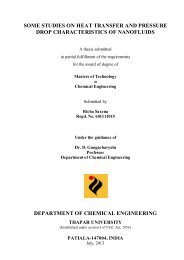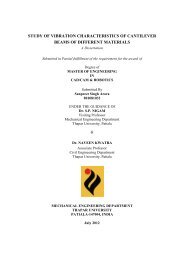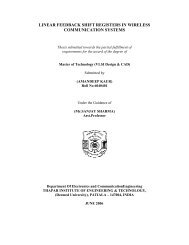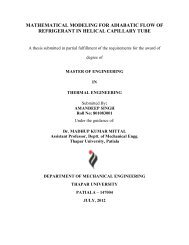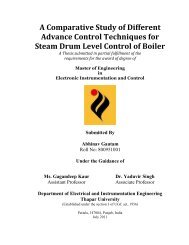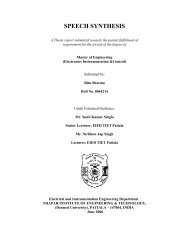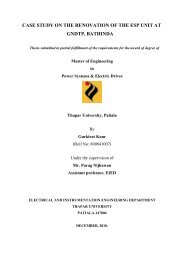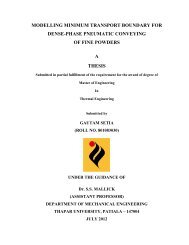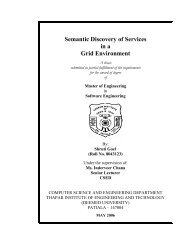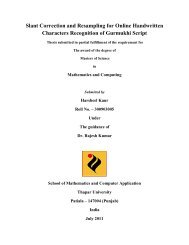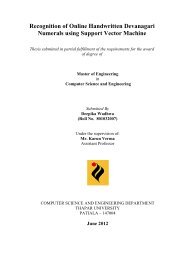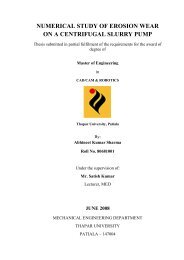from indigenous fermented foods and human gut ... - Thapar University
from indigenous fermented foods and human gut ... - Thapar University
from indigenous fermented foods and human gut ... - Thapar University
Create successful ePaper yourself
Turn your PDF publications into a flip-book with our unique Google optimized e-Paper software.
CONCLUSIONS<br />
The main objective of this study was to find new probiotic c<strong>and</strong>idates to be used in<br />
functional food <strong>and</strong> in vitro characterisation of selected strains following the criteria for selection<br />
of probiotic strains proposed by a Joint FAO/WHO working group of experts in probiotics.<br />
In the present study, six strains of Lactobacillus were selected out of ninety six isolates <strong>from</strong><br />
<strong>fermented</strong> <strong>indigenous</strong> <strong>foods</strong>, beverages <strong>and</strong> <strong>human</strong> <strong>gut</strong>, based on their survival ability under<br />
gastrointestinal conditions, the isolates were characterized by phenotypic <strong>and</strong> genotypic methods.<br />
Each strain presented individual characteristics, which may contribute to their ‘probiotic’<br />
health-promoting effects. Based on the results of their probiotic properties, two strains, L. casei<br />
(LAM-1 <strong>and</strong> LAM-2), two L. delbruckeii (LKH-2 <strong>and</strong> LKH-3), one L. helveticus (LKH-5) <strong>and</strong><br />
one strain of L. fermentum (Lamec-29) were finally selected.<br />
All six strains were able to tolerate phenol, which indicate that they may reach the site of<br />
action, the small intestines unharmed. Because of their metabolic properties, they would<br />
probably contribute to the reduction of cholesterol levels due to the presence of Bsh activity. In<br />
addition, two of the strains, namely L. casei LAM-1 <strong>and</strong> LAM-2, may also contribute to<br />
alleviation of lactose intolerance because of their β-galactosidase activity. All six selected strains<br />
have long history of safe use <strong>and</strong> do not exhibits transferable antibiotic resistance, which implies<br />
their acceptability according to the guidelines of the European Food Safety Association.<br />
Based on the antimicrobial, coaggregative <strong>and</strong> adhesive properties of the selected<br />
Lactobacilli it was inferred that the isolates were potential for inhibition or exclusion of food<br />
pathogens by different mechanisms. Moreover the ability of the probiotic Lactobacilli to<br />
coaggregate with pathogens, may enhance their (pathogens) clearing <strong>from</strong> the gastrointestinal<br />
142



